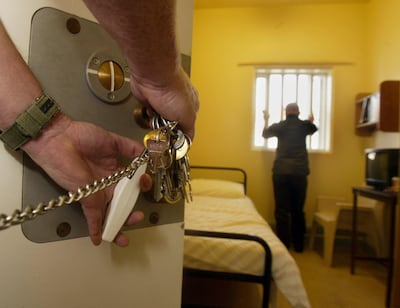Terrorists in UK prisons will now face stricter checks on their cells to prevent them from hiding extremist literature, the British government has said.
Some extremist prisoners stockpile books with smaller pieces of radical text inside them to throw off prison officers and new measures are designed to end the practice.
Prisoners are allowed to keep an unlimited number of books in their cells, but the new rules will state they must fit into two medium-sized boxes with a maximum weight of 15kg.
Ministers hope the curbs will prevent extremists from spreading terrorist ideology and radicalising other inmates.
It follows one case in which a prisoner was found to have amassed more than 200 books in an apparent bid to thwart staff searching for such material.
Those serving time for terrorist offences will also be prevented from delivering sermons, the Ministry of Justice said.

The most dangerous prisoners are already banned from leading Friday calls to prayer – and a report last year by Jonathan Hall KC found that inmates promoting Islamist terrorism will often “boycott” official Friday prayers.
But the government has claimed its new measures will be effective by “extending the ban to all faiths and not just those in high-security prisons”.
Formally announcing the plans on Sunday, the new Justice Secretary Alex Chalk said: “Faith can play a vital part in prisoners’ rehabilitation but we must never tolerate terrorists who seek to exploit religious services to advance their own sinister agenda.
“These changes, alongside tougher sentences for terrorists who commit crimes behind bars and our work to separate more of the most radical terrorists, will better protect our hardworking staff, other prisoners and the public.”


